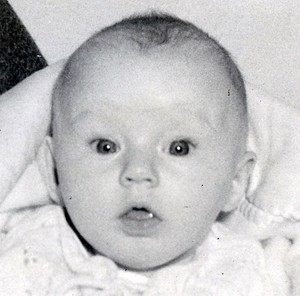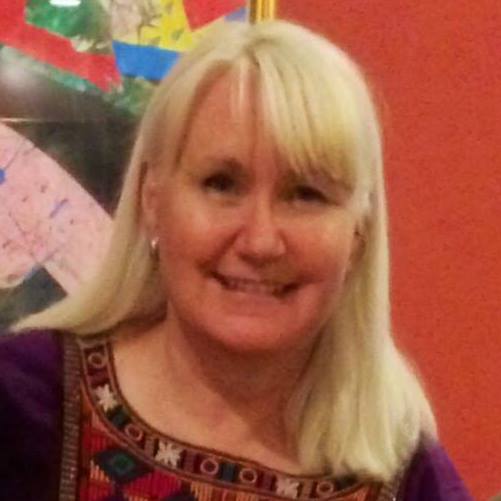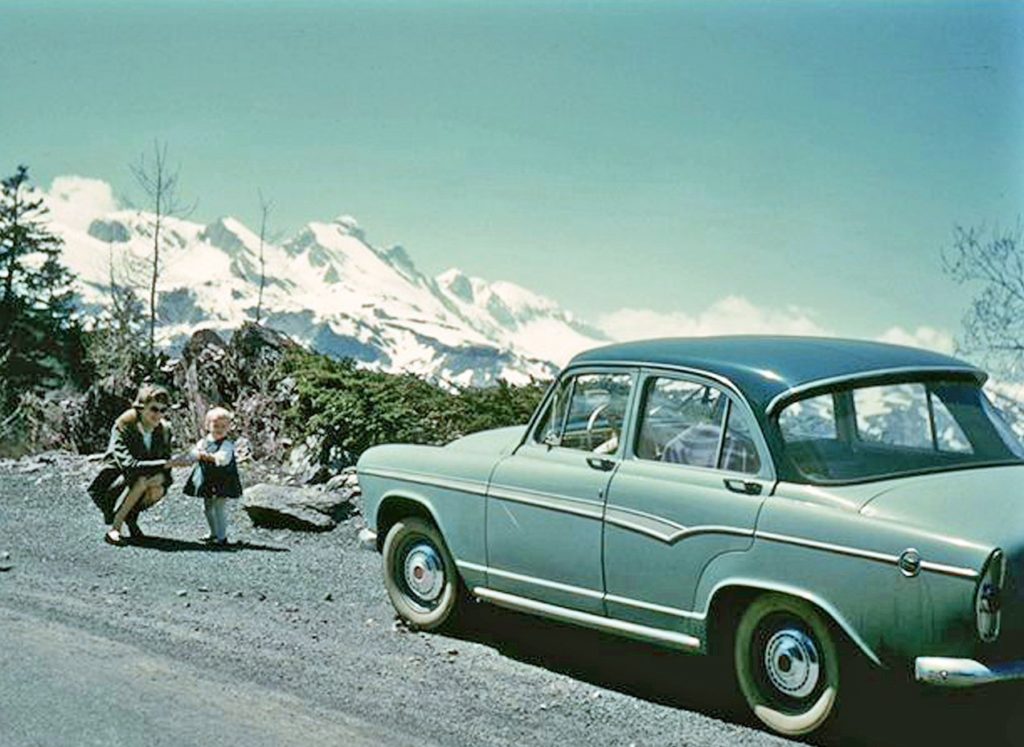By Megan Smolenyak
As the rest of the world commemorates what would have been John Lennon’s 80th birthday, I celebrate my 60th. More or less confined at home. Not the circumstances I would have chosen, but just about all of us are apt to have pandemic-impaired birthdays, so no complaints. Still, a milestone like this makes one reflect, and the lack of distraction makes it even easier than usual to overthink, so I’ve been in mulling mode for a spell.
As a professional genealogist who’s spent the last few decades telling other people’s stories, I’ve decided that while I’ll continue doing so, it’s time to share some of my own. That may sound very ho-hum in a selfie-centered world, but it’s not a decision I reached lightly. Even as I type these words, the military-raised, Irish Catholic school girl in me is still harrumphing and wagging her finger for daring to place myself center stage. But 6–0. Tick tock. 217,000 extra deaths. TICK. TOCK.
As the hands of the clock continue to inch ever forward, I can’t help but recall lyrics from Lee Ann Womack’s Something Worth Leaving Behind:
I may not go down in history
I just want someone to remember me
That’s where I am today, but I doubt I’m an exception. If we’re honest with ourselves, I suspect all of us hope to be remembered, and particularly for the growing number of us with no children, leaving a trace won’t happen on its own. And so today I’m diving in as a birthday indulgence to share why I think I had the best babyhood ever.
Let’s start with the fact that I was born in 1960. Anyone who’s read or even heard of When Everything Changed: The Amazing Journey of American Women from 1960 to the Present by Gail Collins knows that this was great timing for an American female. Through most of my life, things kept getting steadily better for women. Title IX kicked in a bit late to do much for my benefit, but my sister Stacy was the star of our high school tennis team because we had a coach who was open-minded enough to include girls since there was no team for girls. Roe vs. Wade was decided when I was a tween, so it’s always been part of the scenery for me, and now that it’s threatened, I’m old enough to not be personally affected (though it still makes me want to spit nails).
Desegregation was tardily implemented where I lived in my junior high years, but coming from a military background, I didn’t grasp what the fuss was about. My first-grade teacher was Black and my non-Catholic classes (we moved a lot, so I went to seven schools by the time I was ten) had always been diverse, as were the churches I attended on base. Hailing from the privileged side of the imbalance this policy was developed to address, I didn’t have to get up at the crack of dawn for a long ride to school or deal with classmates who resented my presence, so remained blissfully oblivious. The only impact for me was getting cornrows from a couple of new classmates who found my bone-straight, yellow hair curious, an experience I enjoyed because who doesn’t like having their hair fussed with?
After my parents divorced, I watched my mother go from struggling to get a credit card in her own name to leap-frogging her way up the corporate ladder. By the time I was a young adult, she was a CEO and my father was a stay-at-home dad for his second family.
As an aside, I object to being categorized as a baby-boomer because the experiences I’ve just shared aren’t very Boomer-esque. While most Boomers served in or protested the Vietnam War, I counted down the days until my dad came home. Watergate looms large in the memories of many of this cohort, but my main recollections are the strangeness of going to school with Gordon Liddy’s kids at the time. I prefer to think of myself as a premature Gen X-er, but I digress.
So aside from this superlative timing, why do I think mine was the best babyhood ever? Well, I was fortunate enough to be born in France (which still holds a special place in my heart) to parents who were all of 20 and 24.¹ My dad was serving in the Army and flew back Stateside to marry my mom. A honeymoon baby (shout-out to Niagara Falls), I joined them nine-and-a-half months later.
In retrospect, I’m stunned by how adult they were at such a young age. I was what used to be called a “blue baby,” meaning I was born with a heart defect of sorts. Luckily for me, Dr. Vivien Thomas had developed surgery for this condition about 15 years before my birth (again with the good timing). Even more fortuitous, it healed spontaneously and I didn’t need surgery. In fact, I didn’t even know any of this until I stumbled across my baby book years later where my mother — a nursing student at the time — had made medical notes. But my young parents — 3,000 miles from the support of their families — didn’t have the advantage of knowing how things would turn out. All they had was the worry about their first-born.
Even so, they did what any young Americans would do if let loose in Europe — they traveled all over the place. And they didn’t let having me slow them down. See that photo at the top of this article? That’s me encountering snow for the first time in the foothills of the Pyrenees. My dad tells me he had a hard time getting the shot because I hated it and kept throwing the snowballs my mom handed me to the ground. The car in the photo is a Simca. Dad fitted a piece of plywood over the backseat and covered it with an Army blanket, and that’s where I happily rolled around Europe. Seat belts existed, but weren’t yet mandatory in France or the U.S. And car seats? That was Jetsons territory.²





Photos: Here I am with a farmer and some mop-headed cows in France. And sitting with a bunch of cheese in Holland. There I am trying to steer a boat because, sure, why not? And using my wily baby charms with an aging WWI soldier we met at Oise-Aisne American Cemetery. And again with some random Dutch fellow.
How lucky was I to get to bounce around Europe practically out of the womb? Is it any wonder I have wanderlust? At a time when air travel was still a luxury, I had my first passport at six months. This infant- and toddler-based rambling set me on a path that’s only been interrupted 100+ countries and six decades later by a pandemic, but one which I hope to resume before long.

So on my 60th, I wallow in gratitude for my parents, George and Seton, who took everything that was thrown at them in stride, opting to toss wee-me in the back of the Simca so we could all explore. And to family members from future generations, I leave you this unapologetically self-centered snippet of my life in the hope that “someone will remember me.”
¹ Thanks to all those round numbers, my mother and I would hold a joint birthday party in 2000 when she turned 60 and I turned 40. We called it the millennial centennial.
² In a sign of the times, photos from my second birthday feature me, a cake, and a handful of adults, three of whom were smoking.
 Megan’s celebrity roots research includes the Obamas, Joe Biden, Hillary Clinton, Megan Markle, Judy Collins, Lin-Manuel Miranda, Stephen Colbert, Brooke Shields, Cory Booker, Susan Sarandon, Jimmy Fallon, Melissa McCarthy, Bruce Springsteen, Emmitt Smith, Richard Blais, Betty White, Katy Perry, Beyoncé, Josh Groban, Pink, Ken Burns, Prince, Jon Stewart and Bruno Mars. One of her most famous genealogical research projects includes tracing President Obama’s roots to Moneygall.
Megan’s celebrity roots research includes the Obamas, Joe Biden, Hillary Clinton, Megan Markle, Judy Collins, Lin-Manuel Miranda, Stephen Colbert, Brooke Shields, Cory Booker, Susan Sarandon, Jimmy Fallon, Melissa McCarthy, Bruce Springsteen, Emmitt Smith, Richard Blais, Betty White, Katy Perry, Beyoncé, Josh Groban, Pink, Ken Burns, Prince, Jon Stewart and Bruno Mars. One of her most famous genealogical research projects includes tracing President Obama’s roots to Moneygall.
Follow Megan on Facebook, Twitter, Pinterest and YouTube. To learn more about Megan and her work visit her website megansmolenyak.com.


Leave a Reply